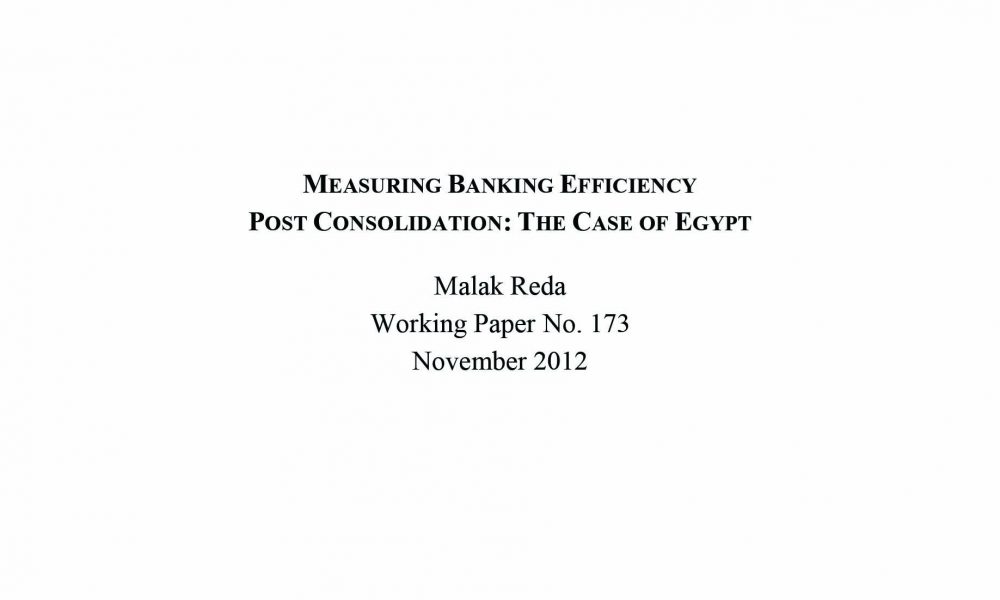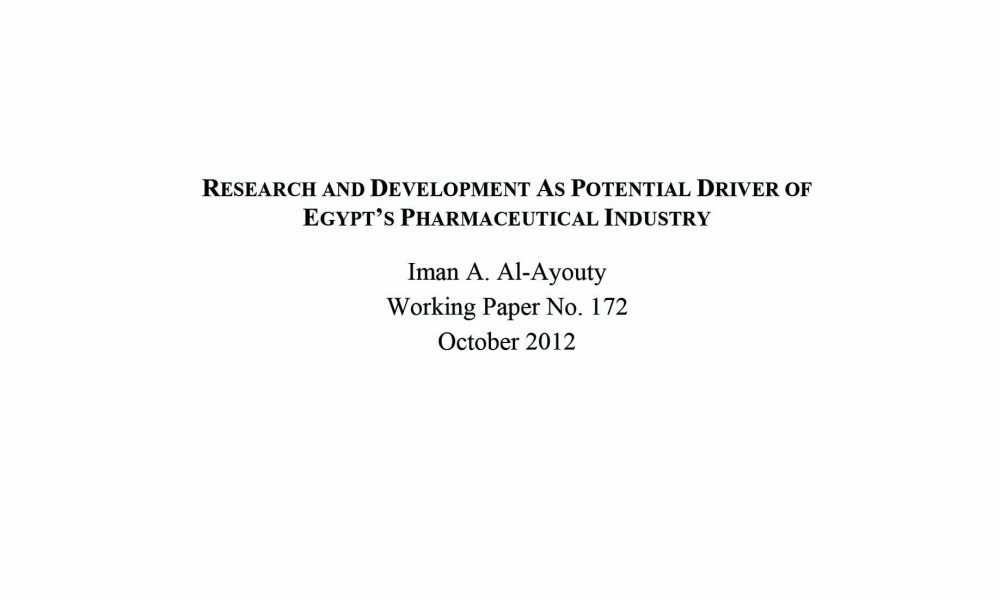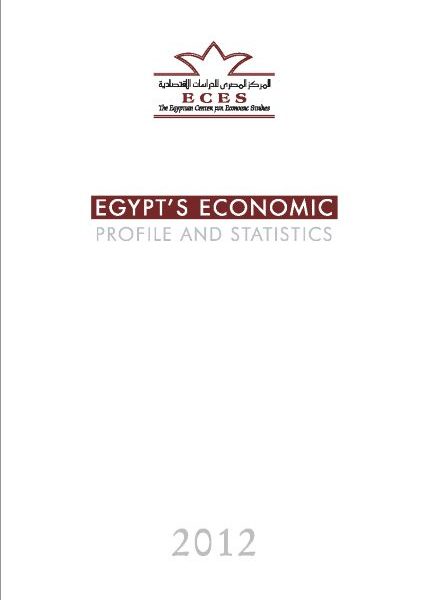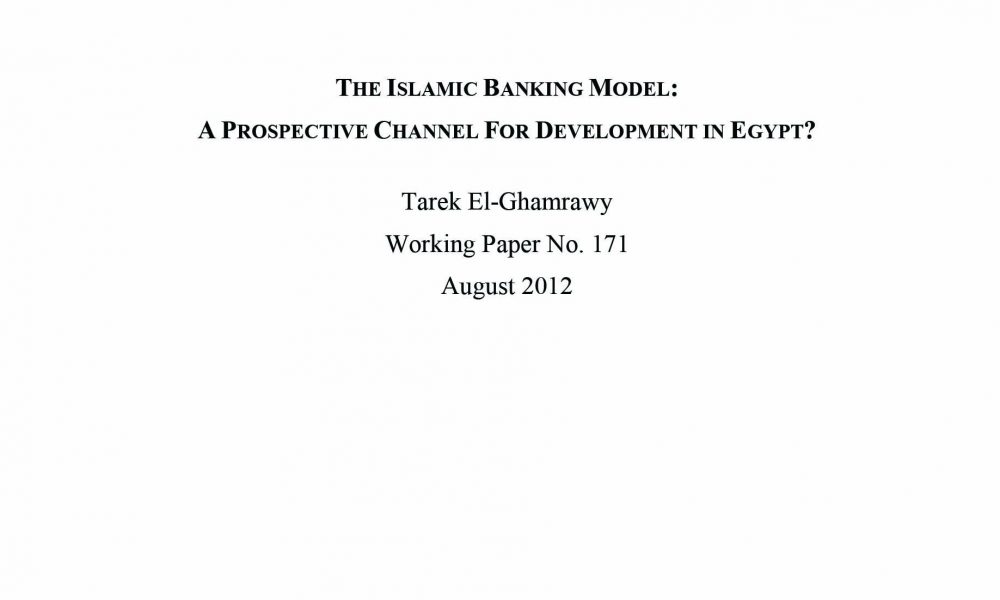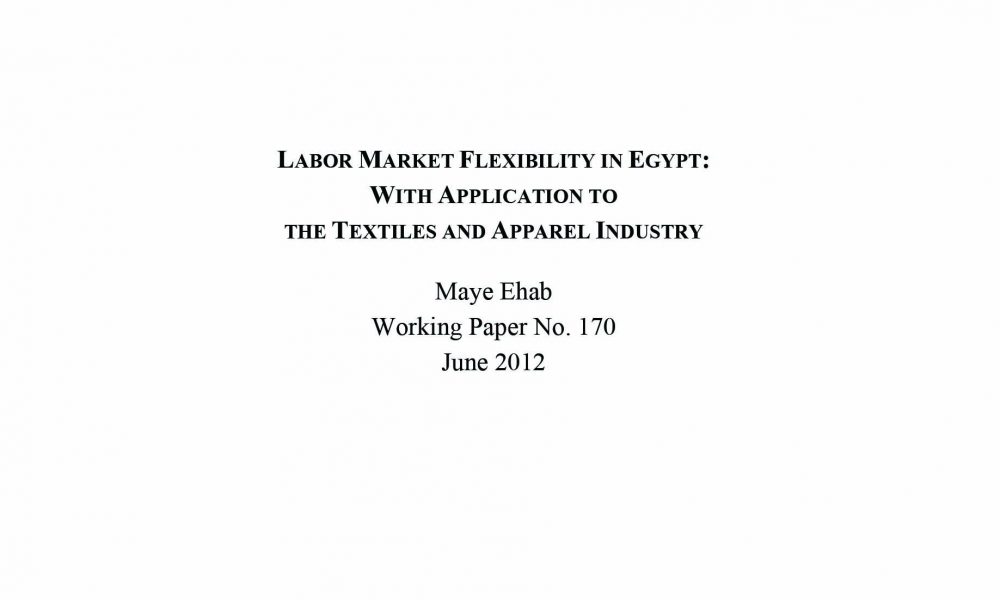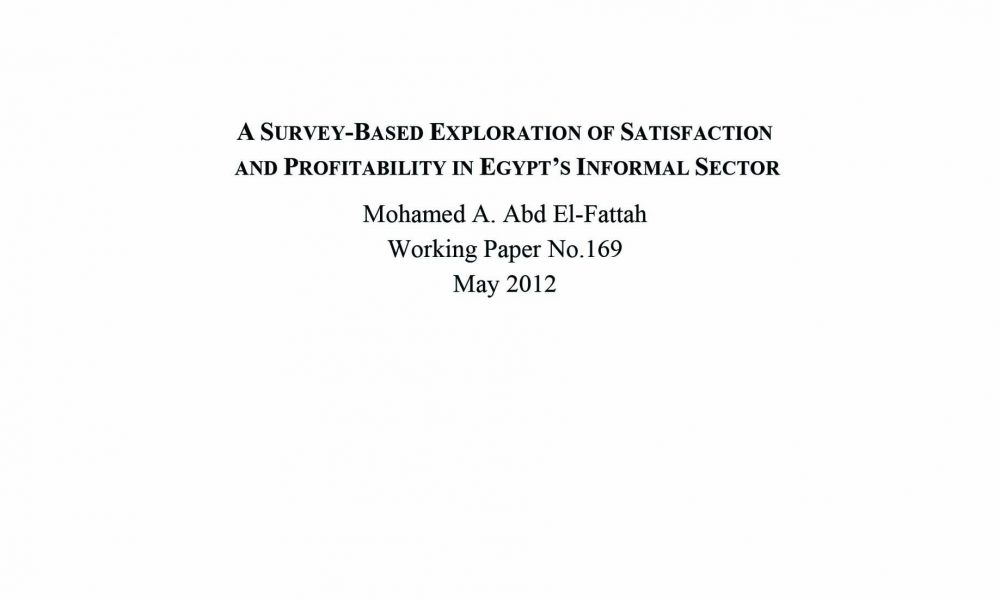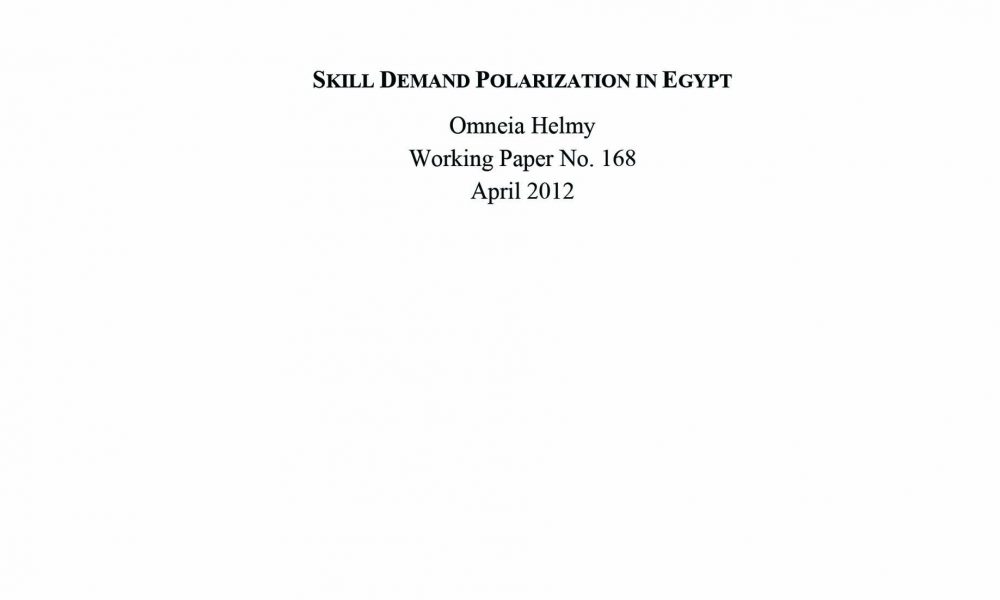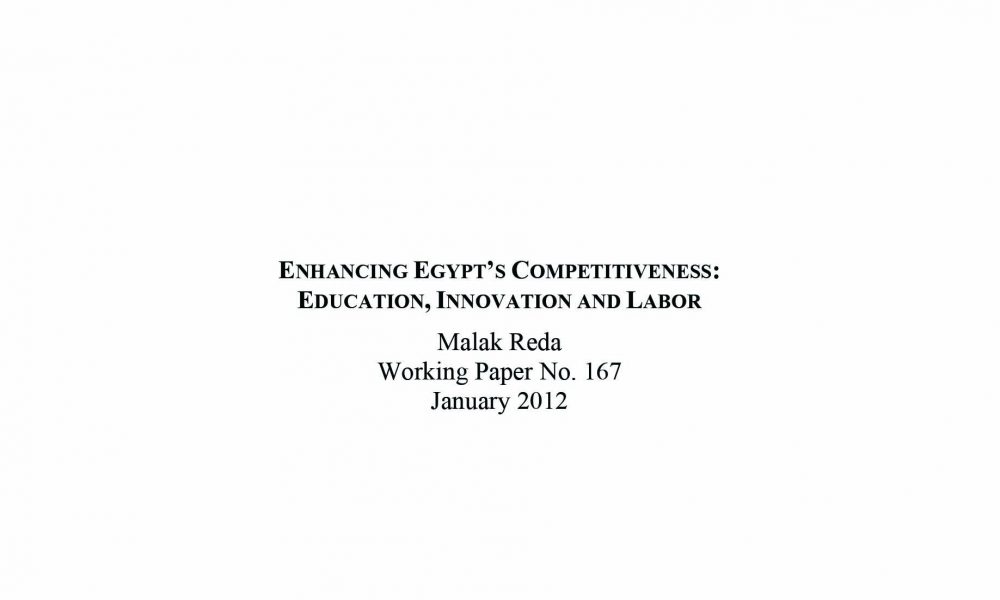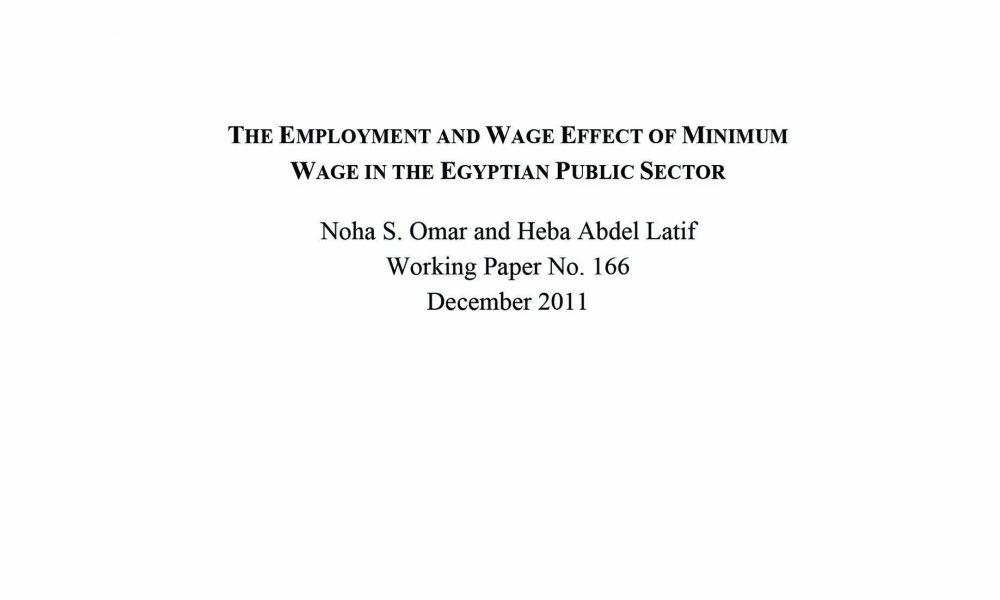Intended mainly for investors and the business community, this annual publication provides summary data and information on the various aspects of the Egyptian economy.
Abstract: An efficient banking system is a key element of the growth process. Despite banking reforms undertaken over the past two decades, the Egyptian banking sector has yet to play an effective role as an engine of growth. This study discusses the potential role of Islamic banking in enhancing development in Egypt, especially that the […]
Abstract: Labor market rigidity is a major constraint to doing business in Egypt where labor regulations are perceived as a major constraint to 27 percent of surveyed firms in Egypt. This rigidity is considered one of the causes of high and persistent unemployment. This paper addresses the effect of labor laws and institutions on the […]
Abstract: This paper investigates the determinants of job satisfaction, profitability and informality in the informal sector in Egypt. It is based on a sectorally structured sample survey that elicits the views of 90 employers and 180 employees regarding informality. With respect to employers, findings indicate that they tend to be more profitable in the trade […]
Abstract: By tracking changes in the employment and wage structure of 9 high, middle and low skilled occupations in 18 economic activities over the period 2000-2009, this paper provides evidence that skill demand polarization is growing in Egypt and wage disparity is widening. The empirical analysis indicates that the demand for middle skilled workers has […]


